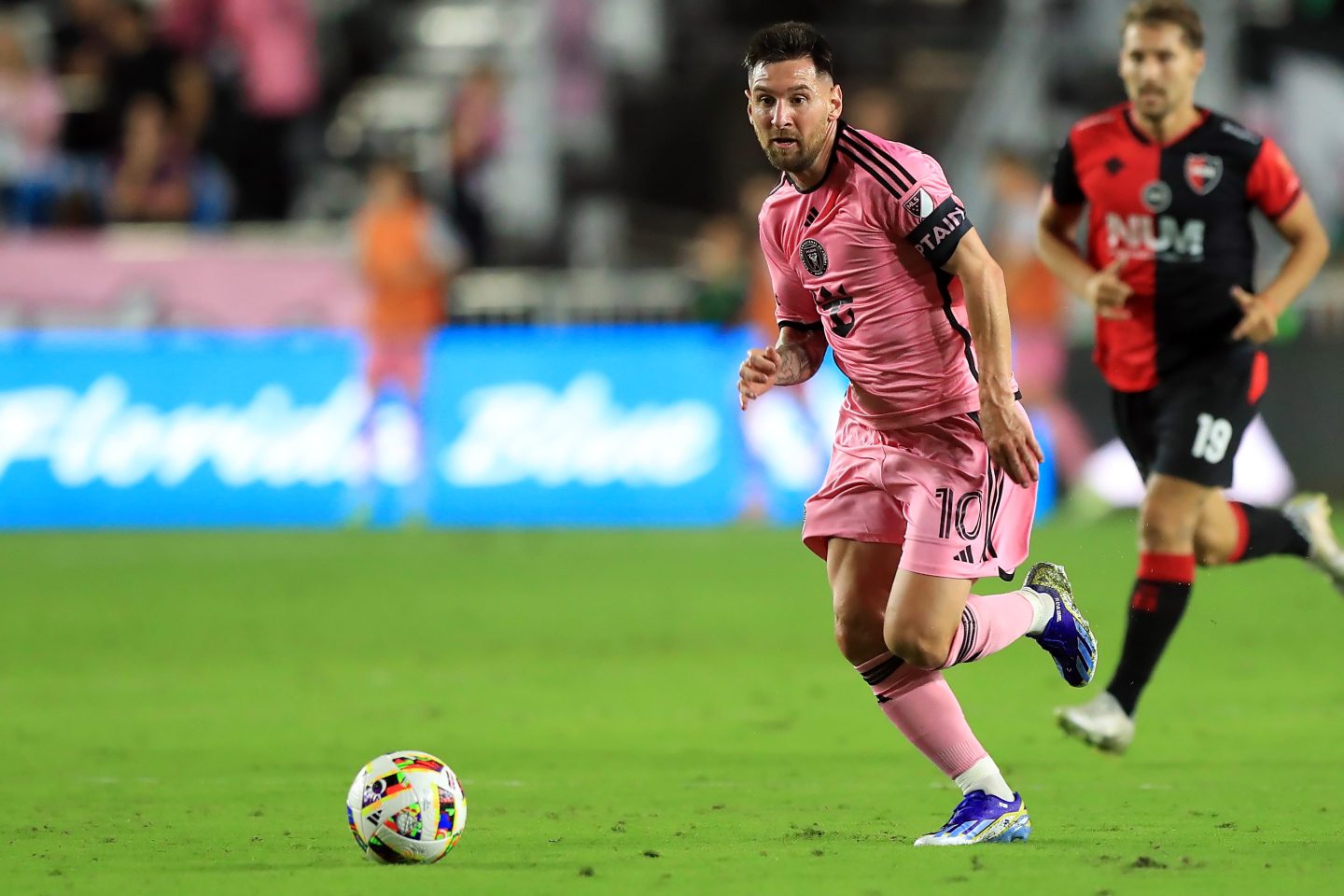Fan backlash over Inter Miami’s decision not to feature soccer star Lionel Messi in a friendly match in Hong Kong earlier this month has blown up to a political crisis for the U.S.-based soccer team.
Commentators, politicians, and officials quickly blamed politics for Inter Miami’s decision to bench Messi. “One theory is that [Inter Miami’s] actions have political motives as … external forces deliberately wanted to embarrass Hong Kong through this incident,” wrote Global Times, a state-run English-language tabloid in mainland China. “The possibility of this speculation cannot be ruled out,” it continued.
To make matters worse, Messi took to the field in Japan just a few days later, sparking huge outcry in China. Backlash kept building, with authorities canceling friendly matches featuring the Argentinean team in Beijing and Hangzhou. “Because of the reasons known to all, we’ve learned from supervising authorities that the conditions are immature for the match to go forward,” the Hangzhou Sports Bureau wrote on social media on Feb. 9.
On Tuesday, Messi took to Chinese social media to explain his nonappearance in Hong Kong. The Argentinean footballer uploaded a 140-second–long video on Weibo in his third attempt to set the record straight since the match in the Chinese city on Feb. 4.
“I wanted to record this video and give you the true version so nobody has to continue reading false stories,” Messi said in the video, denying that political views played a role in his decision not to play. The soccer player blamed an inflamed adductor that first emerged in a previous match in Saudi Arabia, with the injury worsening by the time he got to Hong Kong. Messi decided to play in Japan, after his injury improved, the result of a need “to get back up to speed.”
Messi added that he has “a very close and special relationship” with China, which dates from the start of his career. The soccer player last played in mainland China in June 2023.
Attendees of Inter Miami’s exhibition match on Feb. 4 were furious at the U.S. team’s decision not to field Messi and fellow team member Luis Suárez, booing players and calling for a refund by the match’s end.
The fiasco over Messi’s no-show in Hong Kong has cost the match organizers millions of dollars. Tatler Asia, which hosted the match, withdrew its application for 16 million Hong Kong dollars ($2.1 million) in government funding. Tatler Asia later said it would offer a 50% refund on ticket prices, following sustained criticism from government officials and fans; it estimated the refund could cost up to 56 million Hong Kong dollars ($7.2 million).











